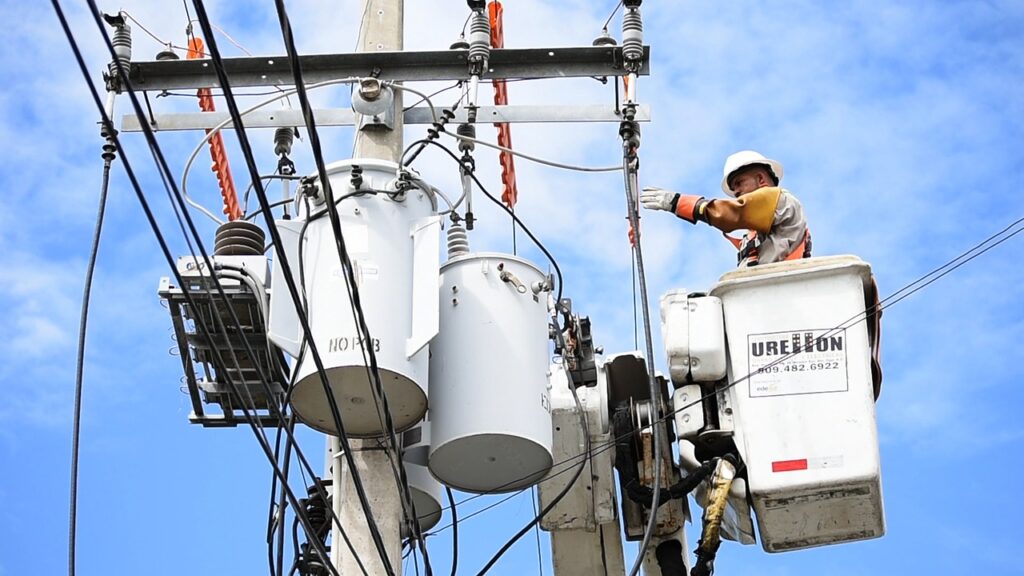Electricians play a crucial role in our modern society. These skilled professionals install, maintain, and repair electrical systems in residential, commercial, and industrial settings. With the increasing reliance on technology and electrical power, the demand for qualified electricians continues to grow.
Top Electrician Programs

Electrician Programs from Lincoln Tech
Electrician programs are offered in MD, PA, CO, CT, TX, IN, NJ, GA, IL, CT, NJ, NY

Electrician Programs from Penn Foster
Electrician career diploma offered online.
Importance of Electricians in Today’s World
In today’s world, electricians are more important than ever. They ensure the safe and efficient operation of electrical systems, which power our homes, businesses, and infrastructure. From lighting and appliances to communication networks and renewable energy systems, electricians are responsible for the installation and maintenance of the electrical components that make modern life possible.
Role of Electrician Schools in Preparing Individuals for a Successful Career
Electrician schools play a vital role in preparing individuals for a successful career in the electrical industry. Through comprehensive training programs, students learn the technical skills and theory necessary to become competent electricians. In addition, electrician schools provide hands-on training and practical experience, helping students develop the problem-solving abilities and confidence required to excel in this rewarding profession.
Schools Offering Electrician Training Programs
- Lincoln Technical Institute – Multiple locations
- Penn Foster Career School – Online program
- Vancouver Community College – Vancouver, Canada
- Los Angeles Trade-Technical College – Los Angeles, CA
- Texas State Technical College – Waco, TX
- Humber College – Toronto, Canada
- George Brown College – Toronto, Canada
- New York City College of Technology – New York, NY
- Pennsylvania College of Technology – Williamsport, PA
- British Columbia Institute of Technology (BCIT) – Burnaby, Canada
- Northwestern Institute of Electrical Training (NIET) – Chicago, IL
- Southern Alberta Institute of Technology (SAIT) – Calgary, Canada
- Houston Community College – Houston, TX
- TAFE Queensland SkillsTech – Brisbane, Australia
- Northern Alberta Institute of Technology (NAIT) – Edmonton, Canada
- Florida Technical College – Multiple locations
- Saskatchewan Polytechnic – Saskatoon, Canada
- Coyne College – Chicago, IL
- Algonquin College – Ottawa, Canada
- Pennsylvania State University – University Park, PA
- Trades Labour Corporation (TLC) – Vancouver, Canada
- Wyoming Technical Institute – Laramie, WY
- Red River College – Winnipeg, Canada
- Ohio Technical College – Cleveland, OH
- Cape Fear Community College – Wilmington, DE
Types of Electrician Schools
Vocational and Trade Schools
Vocational and trade schools offer specialized training programs for individuals pursuing a career in the electrical field. These schools focus on providing hands-on, practical experience alongside classroom instruction. Students can typically complete their training in a shorter time frame compared to traditional college programs, enabling them to enter the workforce more quickly.
Community Colleges
Community colleges offer associate degree programs in electrical technology, which combine general education courses with specialized electrical training. These programs usually take two years to complete and provide a more comprehensive education compared to vocational schools. Graduates of community college programs may have additional career opportunities, such as working as electrical engineering technicians or pursuing further education.
Online Learning Options
Online learning options provide flexibility for those who may not be able to attend traditional in-person programs. Many schools offer online courses or hybrid programs, which combine online and in-person instruction. While online learning can be a convenient option, it’s essential to ensure the program provides adequate hands-on training and meets industry standards for electrician education.
Apprenticeship Programs
Apprenticeship programs are another pathway to becoming an electrician. These programs combine on-the-job training with classroom instruction, typically over a four to five-year period. Apprentices work under the supervision of experienced electricians, gradually gaining skills and knowledge while earning a wage. Upon completing an apprenticeship, individuals can pursue licensure and work as journeyman electricians.

Benefits of Attending an Electrician School
Learning Technical Skills and Theory
Attending an electrician school provides students with the opportunity to learn essential technical skills and theory. These programs cover topics such as electrical safety, circuit design, and installation techniques. A solid foundation in these areas is crucial for success in the electrical industry.
Hands-On Training
Hands-on training is a critical component of electrician education. Electrician schools offer practical experience through lab exercises and on-site training, allowing students to apply their knowledge to real-world situations. This hands-on approach helps develop problem-solving abilities and builds confidence in one’s skills.
Preparation for Licensure and Certification
Electrician schools prepare students for licensure and certification exams, which are often required to work as an electrician. These programs ensure students have the necessary knowledge and skills to pass industry-standard exams, such as the National Electrical Code (NEC) exam, and obtain their licenses.
Networking Opportunities
Attending an electrician school provides networking opportunities with fellow students, instructors, and industry professionals. These connections can lead to job opportunities, mentorships, and valuable resources for career growth.
Enhanced Employability and Earning Potential
Graduates of electrician schools have a competitive edge in the job market, as they possess the skills and knowledge employers seek. In addition, individuals with formal electrician education may have greater earning potential compared to those without specialized training.
Factors to Consider When Choosing an Electrician School

Accreditation and State Approval
Accreditation and state approval are essential factors to consider when choosing an electrician school. Attending an accredited program ensures that the education provided meets industry standards and is recognized by employers. Additionally, state approval is necessary for licensure and certification exams.
Curriculum and Program Offerings
When evaluating electrician schools, it’s crucial to examine the curriculum and program offerings. Look for programs that provide comprehensive training in areas such as electrical theory, safety, and installation techniques. Additionally, consider whether the school offers specialized training in areas of interest, such as renewable energy or industrial automation.
Cost and Financial Aid Opportunities
Cost is an important consideration when choosing an electrician school. Compare tuition and fees for various programs to find one that fits your budget. Additionally, research financial aid opportunities, such as scholarships, grants, and loans, to help offset the cost of your education.
Job Placement Assistance
Job placement assistance is a valuable resource for students seeking employment after graduation. Look for electrician schools that offer job placement services, such as resume reviews, interview coaching, and job search support. These services can help increase your chances of finding a job in the electrical industry.
School Reputation and Student Reviews
Lastly, consider the reputation of the electrician school and read student reviews. Look for schools with a track record of successful graduates and positive feedback from students. This information can provide insight into the quality of education and student experience offered by the school.
Preparing for Electrician School
Assessing Current Skills and Knowledge
Before enrolling in an electrician school, assess your current skills and knowledge. Determine your strengths and areas for improvement, which can help guide your educational journey. This self-assessment can also help you identify any gaps in your understanding that may need to be addressed before beginning your program.
Researching Program Prerequisites
Research the prerequisites for your chosen electrician school and program. Some schools may require specific coursework or experience before enrolling, such as a high school diploma or GED, as well as foundational courses in math and science. Ensuring you meet these prerequisites can help set you up for success in your education.
Ensuring a Strong Foundation in Math and Science
A strong foundation in math and science is essential for success in electrician school. Core concepts in algebra, geometry, and trigonometry, as well as physics and chemistry, play a crucial role in understanding electrical theory and systems. If your math and science skills need improvement, consider taking additional courses or seeking tutoring before enrolling in an electrician program.
Gaining Relevant Work Experience, If Possible
If possible, gain relevant work experience before enrolling in an electrician school. This experience can provide valuable insights into the electrical industry and help you determine if this career path is the right fit for you. Additionally, having relevant work experience can make you a more attractive candidate for electrician schools and apprenticeship programs.

Tips for Success in Electrician School
Staying Organized and Managing Time Effectively
Staying organized and managing time effectively is crucial for success in electrician school. Create a schedule that balances your coursework, hands-on training, and personal commitments. Use tools such as calendars, planners, and to-do lists to keep track of deadlines and stay on top of your responsibilities.
Seeking Help and Building a Support Network
Don’t be afraid to seek help and build a support network while in electrician school. Reach out to instructors, classmates, and academic advisors for assistance when needed. Establishing connections with peers and professionals in the industry can provide valuable resources and encouragement throughout your education.
Practicing Hands-On Skills Whenever Possible
Practice your hands-on skills whenever possible to reinforce your learning and develop confidence in your abilities. Take advantage of lab exercises, on-site training opportunities, and any additional practice sessions offered by your school. Continually refining your skills will help prepare you for success in the electrical industry.
Preparing for Licensure and Certification Exams
Begin preparing for licensure and certification exams early in your education. Familiarize yourself with the exam format and content, and create a study plan that covers all necessary topics. Seek guidance from instructors and utilize study materials provided by your school or professional organizations. Thorough preparation can increase your chances of passing these exams and obtaining your electrician license or certification.
Beyond Electrician School: Advancing Your Career
Continuing education and staying current with industry changes are vital for advancing your career as an electrician. The electrical industry is constantly evolving, with new technologies and regulations emerging regularly. Participating in continuing education opportunities, such as workshops, seminars, and online courses, can help you stay up-to-date on the latest advancements and maintain your competitive edge.
Pursuing Additional Certifications and Specializations
Consider pursuing additional certifications and specializations to expand your skillset and increase your marketability. Specializing in areas such as renewable energy, industrial automation, or lighting design can set you apart from other electricians and open new career opportunities. Obtaining certifications from industry organizations can also demonstrate your expertise and commitment to professional development.
Networking and Joining Professional Organizations
Networking and joining professional organizations can help advance your career by connecting you with industry professionals and resources. These organizations often offer educational opportunities, job boards, and networking events that can help you stay informed and connected within the electrical industry. Building relationships with other professionals can also lead to job opportunities, collaborations, and mentorship.
Mentoring and Giving Back to the Profession
As you gain experience and expertise in the electrical industry, consider mentoring and giving back to the profession. Sharing your knowledge and skills with aspiring electricians can help strengthen the industry and support the next generation of professionals. Mentoring can also be a rewarding experience that enhances your own professional growth and personal satisfaction.
Ready to Enroll in an Electrician School?
It’s essential to emphasize the critical role electricians play in our society. These professionals ensure the safe and efficient operation of the electrical systems that power our daily lives. Without skilled electricians, modern life as we know it would not be possible.
For those seeking a rewarding and secure career, electrician school can be an excellent pathway. By pursuing an education in this field, you can acquire the skills and knowledge needed to succeed in the electrical industry, which offers numerous opportunities for growth and advancement. It’s important to reiterate the significance of choosing the right electrician school for your individual goals and needs. By considering factors such as accreditation, curriculum, cost, and reputation, you can make an informed decision that sets you up for success in your education and career. At Pathways to Advancement, we’re here to help guide you through this process and connect you with affordable and relevant education options that align with your career goals.
